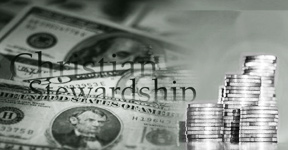Posted: 10/13/06
Keep tabs on credit scores, adviser says
Numbers unknown by most people may affect their ability to secure a loan, buy an insurance policy or even get a job.
Three credit bureaus track consumers’ credit histories, and that information is used to calculate and report a person’s credit score.
“Many businesses use your credit score as a way to assess your ability to handle your financial responsibilities,” said Don McLeod, a certified financial planner and area director in retirement solutions and services with GuideStone Financial Resources, a Southern Baptist agency.
| Don McLeod |
“Think of your credit score as your financial GPA,” McLeod wrote in a recent column distributed by GuideStone. “Your score could range from 300 to 850. Of course, the higher, the better.” McLeod offers three suggestions about how a person can keep tabs on his or her credit score:
• Get a free credit report each year.
Congress passed a law that requires the credit bureaus to provide an individual a free credit report each year, available at www.AnnualCreditReport.com. Individuals also can request a free report directly from the three reporting companies Equifax, Experian and TransUnion.
However, the actual credit score, available from www.MyFico.com, costs $45.
• Check the report for accuracy.
“Mistakes are common on the credit reports,” McLeod writes. “Check the accuracy of the information, including your previous jobs, your previous addresses, and the accounts listed. Check to make sure that any accounts that you thought you closed are actually closed.
“If there are accounts that should have been closed, contact those companies to close the accounts. For other errors, contact the reporting bureau in writing.”
• Know what affects a credit score.
The two most important factors that make up a person’s credit score are payment history and the amount owed, McLeod notes.
“Always pay all of your bills on time if at all possible, even if it means only paying a minimum amount. Even one late payment can impact you in a negative way,” he notes.
“Set up automatic payments from your checking account so you don’t inadvertently miss a payment. Also, keep your debt to available credit ratio to a minimum. Try not to max out a credit card, and never go above a spending limit. Also, do not open up too many credit accounts. This goes against your score.
“A little knowledge and planning can go a long way toward helping you keep a good financial score.”

















We seek to connect God’s story and God’s people around the world. To learn more about God’s story, click here.
Send comments and feedback to Eric Black, our editor. For comments to be published, please specify “letter to the editor.” Maximum length for publication is 300 words.